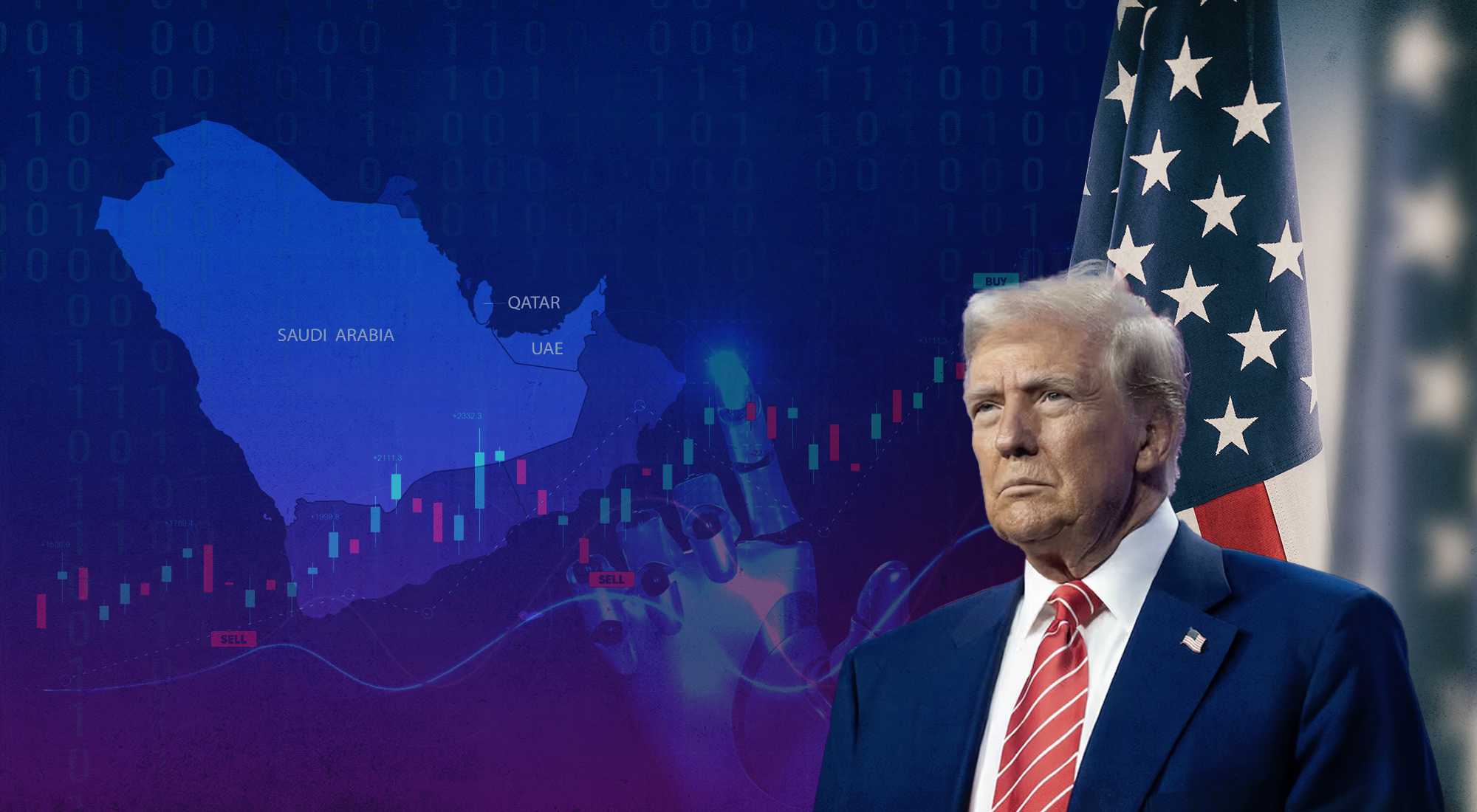TRENDS Research & Advisory has released a new English-language study – Economic Statecraft and Tech Diplomacy: Trump’s 2025 Gulf Tour – which examines the strategic and economic dimensions of U.S. President Donald Trump’s visit to the Gulf region in May 2025, just five months after returning to the White House.
Authored by TRENDS researcher Abdulla Alkhaja, the study sheds light on the tour, which included the United Arab Emirates, Saudi Arabia, and Qatar. It describes the visit as a “qualitative shift in U.S. foreign policy,” highlighting its focus on bilateral investment partnerships, joint defense initiatives, and collaboration in advanced technologies such as artificial intelligence and quantum computing—moving away from the traditional emphasis on security alliances alone.
The study notes that in the UAE, a project to build the largest AI campus outside the United States, with a capacity of 5 gigawatts, was unveiled as part of a partnership between the UAE-based G42 Group and U.S. tech companies. The visit also witnessed the launch of a bilateral acceleration partnership between the two countries in AI and digital infrastructure.
In Saudi Arabia, the study reports that Trump announced investment agreements worth $600 billion, including the largest defense deal in history valued at $142 billion. The agreements also included major AI and cloud computing initiatives with global companies such as Nvidia, Amazon, and AMD. Additionally, Trump announced plans to lift certain sanctions on Syria—a move observers viewed as a first step toward a strategic realignment of U.S. policy in the region.
Meanwhile, deals worth $1.2 trillion were signed in Qatar, including a landmark agreement between Qatar Airways and Boeing. The visit also featured a partnership in quantum computing between U.S.-based Quantinuum and Qatar’s Al Rabban Group.
The study affirms that Trump’s Gulf tour reflects a shift in the United States’ role—from a “security patron” to an “economic and technological partner”—within a redefined relationship with the Gulf based on mutual dependence and investment in the future of digital industries.
The study concludes that this tour marked the beginning of “a new era of innovation-driven economic diplomacy” and that Gulf states are now playing a pivotal role in shaping the global future of technology through a close alliance with the United States.



